Tahrir Storify
![]() “Voices from Tahrir”, a Storify list of sources, resources, sounds, inspirations, and videos used in the making of the public radio hour: More…
“Voices from Tahrir”, a Storify list of sources, resources, sounds, inspirations, and videos used in the making of the public radio hour: More…
![]() “Voices from Tahrir”, a Storify list of sources, resources, sounds, inspirations, and videos used in the making of the public radio hour: More…
“Voices from Tahrir”, a Storify list of sources, resources, sounds, inspirations, and videos used in the making of the public radio hour: More…

![]() Hearing Voices from NPR®
Hearing Voices from NPR®
131 Voices from Tahrir: Portrait of a Revolution
Host: Heba Morayef of Human Rights Watch
Airs week of: 2012-01-25
“Voices from Tahrir” (52:00 mp3):
Bread, Freedom, and Human Dignity:
January 25, 2011. One year ago, a revolution began in Cairo’s Tahrir Square. For the next eighteen days, millions of Egyptians across the country would demonstrate in the streets, demanding the end of their 30-year dictatorship. They were inspired by Tunisians, whose protests, that same month, had forced out the authoritarian regime of President Zine El Abidine Ben Ali. Now it was time for Egyptian President Hosni Mubarak to go.
A few weeks after the protests, the advocacy group Human Rights Watch interviewed some of the organizers of the January uprising: union leaders, civil rights workers, young social media activists, family members of of murdered protestors, and mothers who brought their kids to Tahrir to clean after the protests.. These Human Rights Watch interviews provide a rare, eyewitness account of a revolution, told by the Egyptian people, the activists, human rights defenders, and bloggers who persevered during those eighteen days.
The hour features recordings made in the square by reporters and citizen jounalists from around the world, including Daniel Finnan of Radio France Internationale, Al Jazeera, Egypt Daily News, Ramy Roof, and Matthew Cassel of Just Image.org.
Music: “Erhal (Leave)” and “Laugh, Revolution” by Ramy Essam; “Ezzay? (Why?)” by Mohamed Mounir and “Gomaa Hayran (Uncertain Friday)” by Joseph & James Tawadros
from the collection Our Dreams Are Our Weapons – Soundtracks of the Revolutions in Tunisia and Egypt. Mix: Robin Wise of Sound Imagery.
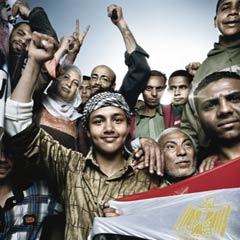 A preview of our upcoming HV hour, “Voices from Tahrir” — a collaboration with Human Rights Watch. This public radio documentary features eyewitness accounts and recordings of the January uprisings (January 25 – February 11 2011) — the one-year anniversary approches:
A preview of our upcoming HV hour, “Voices from Tahrir” — a collaboration with Human Rights Watch. This public radio documentary features eyewitness accounts and recordings of the January uprisings (January 25 – February 11 2011) — the one-year anniversary approches:
“Voices from Tahrir- preview” (9:51 mp3):
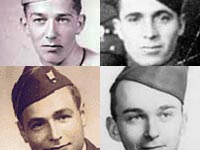
![]() Hearing Voices from NPR®
Hearing Voices from NPR®
128 Prisoners of War: Battle of the Bulge
Host: Erica Heilman of Vermont Folklife Center
Airs week of: 2011-12-14
“Prisoners of War” (52:00 mp3):
Four American soldiers share their WWII experiences, before, during, and after their time in a German POW camp:
Produced for the Vermont Folklife Center: In December 1944 the Allies were closing in on Germany. Hitler had a desperate plan to save the Third Reich, a massive assault he believed would so demoralize that the Allies, they would seek a separate peace, leaving only the Russian army on the eastern front. On December 16 the Germans unleashed an offensive that would become the most brutal battle of the European war: the Battle of the Bulge. Nineteen thousand Americans were killed, about the same number were taken prisoner. We hear from four Americans soldiers about their time in — before, during and after — a German POW camp: Cliff Austin, Harrison Burney, Bill Busier, and Robert Norton.
VFC Radio published a transcript and a CD of “Prisoners of War.” Harrison Burney wrote “From The Bowels of Hell, a soldier’s memoir of World War II, 1944-1945 (143k PDF). Music: “Reitba” and “Concerto No. 3 for Double-Bass and Piano,” composed and performed by cellist Francois Rabbath; “String Quartet in C Major”, the second movement in the “Emperor” by Franz Joseph Haydn, performed by the Concord String Quartet; and “St James Infirmary” from pianist Allen Toussaint’s The Bright Mississippi
.
124 Walk in the Park: National Parks, Neighborhood Parks
Host: Barrett Golding of Hearing Voices
Airs week of: 2011-10-19
“Walk in the Park” (52:00 mp3):
Yellowstone, Zion, the Everglades, and William Pierce Park in DC:
From the series Neighborhood Stories– Park Life, profiling the daily life of a community’s urban oasis: “Country Bobby” Lowry is the guardian of Walter Pierce Community Park in Washington, D.C. He’s been keeping an eye on the park for almost three decades, and knows more about how it than any city official — he knows the trees, the plants and the kids. In the first of four stories about the park, we meet this transplanted farm boy who never takes shortcuts in his work. See NPR’s has great photo gallery.
Utah’s Zion National Park draws 2.7 million visitors a year, and a major attraction for hearty hikers is a trek along the Grotto trailhead to Angel’s Landing. From the banks of the Virgin River, the yellow-and-red sandstone sides of Zion Canyon rise 2,000 feet. It feels like being inside a huge body. The canyon walls are the rib cage spread open and Angel’s Landing is like the heart.
Take an Angels Landing eHike. Photo gallery at NPR.
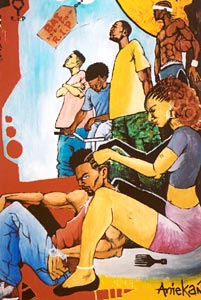 From Neighborhood Stories– Park Life: An ode to Leah at Walter Pierce Community Park, who braids hair by the basketball court while the guys play 5 on 5.
From Neighborhood Stories– Park Life: An ode to Leah at Walter Pierce Community Park, who braids hair by the basketball court while the guys play 5 on 5.
Music from Who Is Jill Scott? Words and Sounds, Vol. 1

![]() Hearing Voices from NPR®
Hearing Voices from NPR®
122 Prisoner of Zion: Religious Fundamentals- 9/11/11
Host: Larry Massett of Hearing Voices
Airs week of: 2011-09-07
“Prisoner of Zion” (52:00 mp3):
Shortly after the World Trade Center fell in autumn 2001, it became clear the United States would invade Afghanistan. Producer Scott Carrier decided he ought to go there too. Why? To see for himself: that’s what writers do. Who are these fanatics, these fundamentalists, the Taliban and the like? And what do they want?
For the weekend of 9/11/11, Hearing Voices from NPR presents Prisoner of Zion. Carrier narrates his trip to Afghanistan. With his young guide and translator, Najibulla, they tour the horrors of war.
Years later Naji tells Scott he must leave his homeland — the dangers for a translator have become extreme. Scott gets Najibulla accepted at Utah Valley University. Naji, it turns out, handles the Mormons quite well, while Scott, teaching at the same school, has a hard time with them. At the end Naji is graduating, about to get married, and start a new job; while Scott wonders whether he can stand teaching another year — or if he’ll wind up on the street like Naji.
→ From Afghanistan: A photo-audio-essay by Scott Carrier; with sounds, images, songs and prayers of the Afghan people.
→ At Amazon: Prisoner of Zion: Muslims, Mormons and Other Misadventures.
Scott Carrier new e-book is out, Prisoner of Zion. It’s available at Amazon and soon in Apple’s iBook store.
Soon after the World Trade Center towers fell in autumn 2001, it became clear the United States would invade Afghanistan. Writer and This American Life radio producer Scott Carrier decided to go there too. He wanted to see for himself: Who are these fanatics, the fundamentalists, the Taliban and the like? What do they want?
In his new book, Prisoner of Zion, Carrier writes about his adventures, but also about the bigger problem. Having grown up among Mormons in Salt Lake City, he argues it will never work to attack the true believers head-on. The faithful thrive on persecution. Somehow, he thinks, we need to find a way—inside ourselves — to rise above fear and anger. Prisoner of Zion is Scott Carrier’s second collection of dramatic tales and essays.
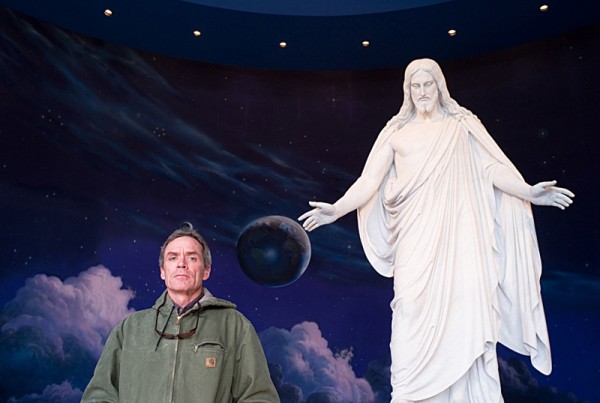
A 360° panoramic photo of “Hiroshima after the Atomic Bomb,” one of several by Shigeo Hayashi:
“On October 1, 1945, I stood at the hypocenter of the Hiroshima atomic bombing and made a slow revolution. In that instant I had a difficulty grasping that this city had been felled by a single explosion.”
Check out the full-size (and full-screen) panoramas at 360Cities: Hiroshima after the Atomic Bomb (1 of 5) by Shigeo Hayashi in Japan
From the Rauch Brothers‘s animations of StoryCorps pieces, “Germans in the Woods” (used in HV’s For the Fallen):
Germans in the Woods: Joseph Robertson was an infantryman in the U.S. Army during World War II, where he fought in the Battle of the Bulge. The stark black and white images in this short haunt the viewer, just as Robertson is haunted by his memories from that battle. (Directed by: The Rauch Brothers. Art Direction: The Rauch Brothers. Background Painting: Iandry Randriamandroso & Tim Rauch. Producers: Mike Rauch & Lizzie Jacobs. Animation: Tim Rauch. Audio Produced by: Michael Garofalo. Music: Fredrik. Label: The Kora Records. Publisher: House of Hassle.)
See all the animations: StoryCorps | Vimeo | YouTube.
Assignment Afghanistan: Writer/photographer Elliott Woods gathered some devastating sounds & stories during his 2010 embed with Lima Company, US Marines. HV collaborators, Jesse Dukes with Shea Shackelford, produced the slideshow series for the Virginia Quarterly Review.
Here’s “Our Deepest Sympathies:”
[jwplayer config=”HV600″ mediaid=”8378″]
The voices of Sergeant Wallace Trahan, Sergeant Aaron Kelly, Sergeant Zachary Scoskie, and Colonel Diane Huey, interviewed at a Bagram Air Base hospital (outside Kabul, Afghanistan) by NPR’s Quil Lawrence, and mixed bg Jim Wildman for Morning Edition:
“Christmas Eve In Afghanistan, Again (transcript)” (4:16 mp3):
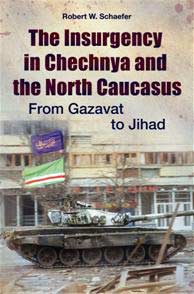 A new book is out by Lt. Col. Robert Scheafer, U.S. Army Special Forces, Eurasian Foreign Area Officer, and poet in the NEA book Operation Homecoming. He’s also host of the HV hour For the Fallen and the NPR stories “Clusters” and “Remembering a Fallen Friend.”
A new book is out by Lt. Col. Robert Scheafer, U.S. Army Special Forces, Eurasian Foreign Area Officer, and poet in the NEA book Operation Homecoming. He’s also host of the HV hour For the Fallen and the NPR stories “Clusters” and “Remembering a Fallen Friend.”
In his book The Insurgency in Chechnya and the North Caucasus: From Gazavat to Jihad:
An expert on both Russia and insurgency offers the definitive guide on activities in Southern Russia, explaining how the Russian approach to counterinsurgency is failing and why the conflict will continue to escalate.
The unique geopolitical characteristics of the North Caucasus has made it a site of conflict for thousands of years. It was, in many ways, the testing and training grounds for today’s conflicts in Iraq and Afghanistan. Understanding this volatile region is especially important now in light of President Obama’s effort to “reset” the relationship between Russia and the United States.
The Insurgency in Chechnya and the North Caucasus: From Gazavat to Jihad is an exhaustive treatment of the 400-year period leading up to the present. Thematically organized, it cuts through the rhetoric to provide a contextual framework through which readers can understand the conflict in the region.
—ABC-CLIO (publisher)
The book is part of the Praeger Security International series. Some early praise for Schaefer’s work:
“Incisive, insightful — in short, invaluable.” – Liz Fuller, Radio Free Europe/Radio Liberty
“A must-read for anyone who wants to understand the nuances of the conflict in Caucasus.”
– Brian Glyn Williams, Associate Professor, University of Massachusetts-Dartmouth“Demystifies our longest running graduate-level conflict…” – Col. Andrew N. “Nick†Pratt, USMC (Ret.), Director, Program on Terrorism and Security Studies and Professor of Strategy and International Politics, George C. Marshall European Center for Security Studies
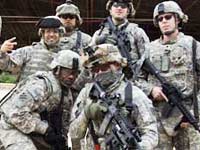
![]() Hearing Voices from NPR®
Hearing Voices from NPR®
104 Vet Vox: Voices of Veterans
Host: Barrett Golding of Hearing Voices
Airs week of: 2010-11-10
“Vet Vox” (52:00 mp3):
For Veterans Day, Vietnam, Korean, and World War Two vets, recorded by StoryCorps, along with a Marine Sergeant’s recent “Don’t Ask Don’t Tell” discharge. And we plug into the iPods of active-duty troops in Iraq (photo gallery), asking them what they’re listening to, and what their lives are like:
Soldier Soundtrack, Iraq- Song: “Indestructible†by Disturbed from Indestructible. “You got to show people that soldiers aren’t just war fighters, they’re peace keepers too…â€
Bob Harlee served as an Army Chaplain for 18 years. In 1965, Harllee was sent to Vietnam, and he had to leave his wife and three children behind. One of those children, Carol, now 47, recently asked her father about his life in those days. As part of the 101st Airborne out of Fort Campbell, Ky., Harllee had to reconcile his role as a spiritual guide within a unit whose job it was to destroy the enemy. Still, Harllee says, his task was clear: “to encourage everybody to keep their faith strong, even though they’re in the midst of the most terrible thing that mankind can bring upon itself.” Bob Harllee died in Charlottesville, Va., several months after his interview session. He was 73.
Soldier Soundtrack, Iraq- Song: “Send in the Clowns†by Barbara Streisand from The Broadway Album. “They’re not really geared towards a democratic or republic sort of society… the biggest issue will be trying to keep Iran or Syria from moving into the power vacuum when we leave…â€
From. their series of of Jack Poet Volkswagon ads
This tune is transfixing: “War & Peace” Music and Words concept by Ryuichi Sakamoto (å‚本é¾), Words by Arto Lindsay
Performed live @ ZEPP, Tokyo 24 July 2005, by: Ryuichi Sakamoto, Steve Jansen, Christian Fennesz, Skuli Sverrisson, Keigo Oyamada. “War & Peace” studio vers is on the 2004 CD Chasm
War & Peace
Is war as old as gravity?
If I love peace do I have to love trees?
Are there animals that like peace and animals that like war?
Is peace quiet?
Is making war an instinct we inherited from our hunting or farming
ancestors?Were farmers the first warriors?
Do we love without thinking?
Do we do the right thing without thinking?
When children fight with their brothers and sisters are they learning
how to make war?How do we test the limit of our bodies without war?
Why do they compare war to a man and peace to a woman?
Peace is unpredictable.
Why is war so exciting?
War is the best game and the worst life.
Is peace the hardest work?
Is peace a time of tension?
What are the different kinds of victory, in a war, in a race?
Is despair a solution?
Why is it dangerous to say “never forget”?
Same song performed by RS’s old bandmates: Yellow Magic Orchestra.
The First Earth Battalion Field Manual (4.8M pdf)
The history of this manual is described in the book The Men Who Stare at Goats, by Jon Ronson. In brief, the manual is a new age Hagakure: Book of the Samurai, and was required reading among our elite troops in the eighties and nineties, describing the warrior as a seeker of truth whose main weapons are love and compassion — practices that were ultimately twisted and perverted in a very American fashion into interrogation and torture techniques used in our war against terrorism.
In order to understand how this all played out, you’ll have to read the book. Don’t see the film, it’s a joke.
Journal of Non-lethal Combat, Feb 2000: The First Earth Battalion
Wikipedia: First Earth Battalion
Lieutenant Colonel Jim Channon: New Earth Army
![]()
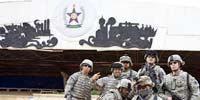 Recently, as part of the US draw-down in Iraq, the US base in Tikrit, “JCC” or Joint Coordination Center, was handed back to the Iraqis. Sergeant First Class George Havel, a soldier with 232 Regiment spent four months in Tikrit, helping to coordinate emergency services. Sargeant Havel gave journalist Jake Warga a tour of Mahmoon Palace, originally built to celebrate Saddam Hussein’s birthdays. US forces had been occupying the palace up until the recent hand-over, living in its marbled halls under golden chandeliers.
Recently, as part of the US draw-down in Iraq, the US base in Tikrit, “JCC” or Joint Coordination Center, was handed back to the Iraqis. Sergeant First Class George Havel, a soldier with 232 Regiment spent four months in Tikrit, helping to coordinate emergency services. Sargeant Havel gave journalist Jake Warga a tour of Mahmoon Palace, originally built to celebrate Saddam Hussein’s birthdays. US forces had been occupying the palace up until the recent hand-over, living in its marbled halls under golden chandeliers.
Aired on PRI The World; by producer Jake Warga, “Mahmoon Palace” (3:24 mp3):
![]() The first of our Soldier’s Soundtrack series: Embedded with the 3rd Infantry Division, US Army, Baghdad, the producer plugged into the soldier’s iPods, asking them what they were listening to, why they liked the song, and what their lives were like. To Queen’s “Bohemian Rhapsody,” Major James Lockridge tells us, “The United States Army can go anywhere at anytime or anyplace. I learned that during the first war. I wouldn’t want to be anybody that had to face the United States.”
The first of our Soldier’s Soundtrack series: Embedded with the 3rd Infantry Division, US Army, Baghdad, the producer plugged into the soldier’s iPods, asking them what they were listening to, why they liked the song, and what their lives were like. To Queen’s “Bohemian Rhapsody,” Major James Lockridge tells us, “The United States Army can go anywhere at anytime or anyplace. I learned that during the first war. I wouldn’t want to be anybody that had to face the United States.”
Aired on PRI The World; by producer Jake Warga, “Iraq: Major Lockridge- Bohemian Rhapsody” (2:47 mp3):
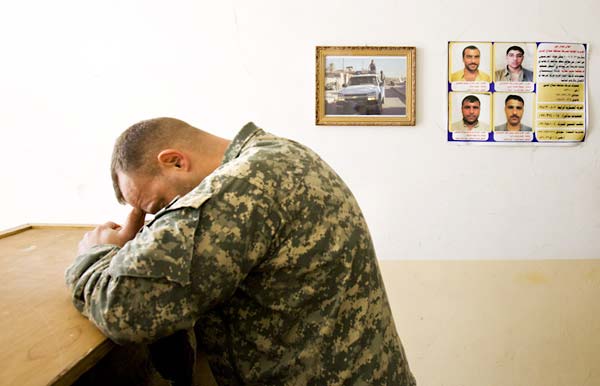
Photo © Jake Warga: “Major James Lockridge, after learning of an IED explosion that killed 5, wounded 17, in Tuz, Iraq. We had been up all night looking for bombs. We missed it. I felt it.”
 Iraq War vet Army Spc Marc Hall has been in Georgia county jails since December 12 2009 for producing a hip-hop song about “stoploss.” The Army’s claims the music “communicated a threat.” On Friday night March 1, the soldier was removed from jail, placed on a military flight, and flown back to Iraq.
Iraq War vet Army Spc Marc Hall has been in Georgia county jails since December 12 2009 for producing a hip-hop song about “stoploss.” The Army’s claims the music “communicated a threat.” On Friday night March 1, the soldier was removed from jail, placed on a military flight, and flown back to Iraq.
Hall had planned to leave the Army when his contract expired this year, but the Army issued a stop-loss order preventing Hall’s separation. Hall recorded the song “Stop-loss” and mailed it to the Pentagon.
“Stop-loss” (4:48 mp3):
More at IVAW Free Marc Hall! and Stoploss Music.
Something beautiful, haunting and appropriate about Jack Warga’s photo exhibit “Leaving Iraq:”
Jake was embedded with the 3rd Infantry Division, US Army. He snapped several dozen back-of-head portraits before he left. More Iraq images and audio in Jake’s Iraq Xmas 2009 HV posts.
A film by Danfung Dennis embedded in Afghanistan with US Marine’s Echo Companyas they were dropped behind enemy lines to seize a key bridge. “Battle for Hearts and Minds“:
On July 2nd, 2009, four thousand US Marines of the 2nd Marine Expeditionary Brigade launched a major helicopter assault into a Taliban stronghold in the Helmand River Valley in southern Afghanistan in order to break a military stalemate reached with the Taliban.
“Battle for Hearts and Minds- Trailer”:
Battle for Hearts and Minds Trailer from Danfung Dennis on Vimeo.